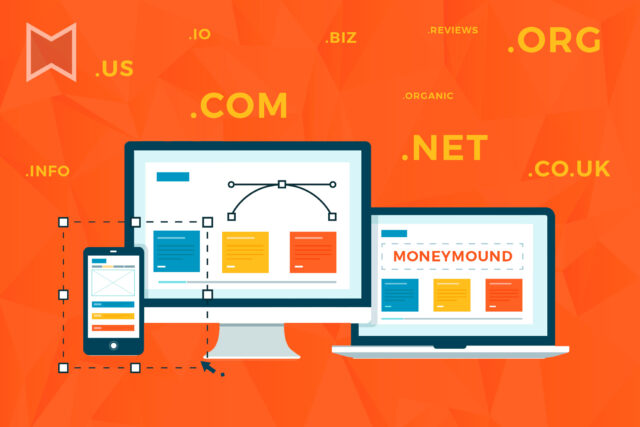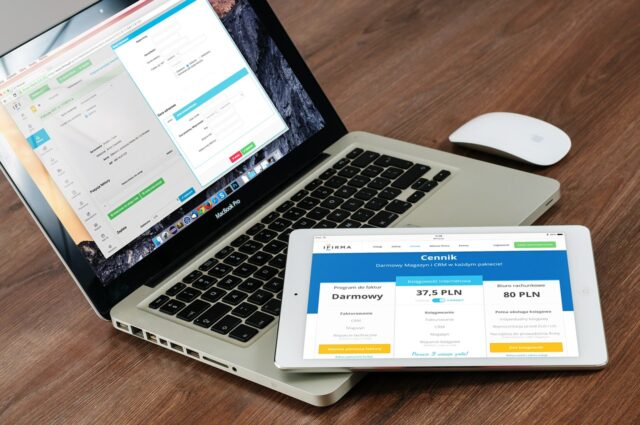
How do you build a website for your business?
Every business needs a website. It doesn’t matter whether you are a solo freelancer, you’re Warren Buffett with a portfolio of businesses, or you’re starting a new small local business. Or, you believe you are onto the next big billion-dollar startup. You still need a site.
So, where do you start? How do you do it? What are the most critical questions to ask?
Why Do You Want A Business Website?
Before you do anything, get really clear on why you want and need a site for your business. It will help guide you in making the best decisions at every step of the way.
What’s it for? What’s its purpose?
Some of the most common include:
- To add credibility for investors, cofounders, customers, vendors, and recruiting
- For visibility
- To make sales and generate leads
- To give others a way to engage with you
What Does It Need To Do?
What does this site specifically need to do for you and your customers?
Do you need to:
- Capture leads?
- Engage in live conversations?
- Elevate your brand?
- Make it easy for customers to make a decision?
- Educate them?
- Facilitate payments?
- Enable great SEO for organic lead generation?
- Support PPC ad campaigns?
- Convince investors you are worth betting on?
Research, Research, Research
Research your market and competition. Research other industries. What is acceptable in your space? What are others doing well and poorly? What room is there to improve and differentiate your businesses?
Don’t just research locally. You may end up wanting to go national or international. What do those websites look like?
You may want to compile a sheet which evaluates these sites on:
- Design
- Ease of use
- Credibility
- Colors
- Pricing
- Product offering
Save your favorites and least favorites so that you can refer to them and share them with designers later.
This will be something you want to define very well in your business plan. Below is a video where you will be able to learn how to write a business plan.
Which Is The Best Platform For Your Business Site?
You can have your site customer-coded from scratch in a variety of computer programming languages. Or you can leverage one of many website builder platforms and even DIY website builders.
If your startup is all based upon your website and its technology and functionality, you may want to go with a building with raw code. For most others, it can be far simpler, faster, easier, and more cost-efficient to use an existing platform and their website templates. This second option can also certainly make it a lot easier and less costly when you want or need to change your web design team. It makes ownership and not being held ransom or facing new high costs a problem if you have issues with them.
There are several prominent platforms to choose from. These include:
- Shopify – for eCommerce stores with payments built-in
- WordPress – for the most integrations
- Wix – for basic free websites
- Squarespace
Which is right for you really depends on your individual needs and priorities. Each designer will have their favorite. Make sure it is the right one for you.
Make sure you are choosing a fit based on the looks, functionality, features, plugins needed, and cost.
Also, consider hosting. You don’t want to go too cheap here and miss out on sales. You also want to avoid having to change hosts and platforms later. While they make it sound easy to switch, it can be a complete disaster.
Build for your immediate needs so that you can leverage speed. Build on a platform that will work for the foreseeable future. Can it scale with you and offer the added features you want to bring on in six of 12 or 24 months?
Who Will Design Your Business Site?
The most likely options are:
- You
- In-house team members
- A cofounder
- Freelancers
- Web design agencies
As a business owner, you probably have a lot of other more important and valuable things to work on. Unless of course, the whole business is you and this website. Even then you may need help from other engineers.
Again, if this business is all centered on coding this site, then you may have an in-house team of other coders to help out. Most businesses don’t or can’t justify the ongoing cost.
There are great web design agencies out there that do beautiful work. They also aren’t cheap. If you are bootstrapping and are on a lean startup diet as part of the business model, you may want to go direct to the types of freelance designers that they typically subcontract the work out to. This will require more of your time and management but can save you 50% or more on the cost. For more information, visit this website.
Choose A Domain Name

Your website domain name can often be just as valuable as the rest of your business and site. Sometimes far, far more. A good domain name can grow in value and maybe resell for millions or hundreds of millions of dollars or more.
Today it can be very hard to find an available website domain name. Again, this is something you may want to outsource to an expert to save enormous amounts of time.
A good domain name will ideally be easy to remember and spell, say what you do, and incorporate top keywords, and have your business name. Perhaps most importantly, you want it to match your business name, toll-free numbers, social media handles, etc.
Next list out the web pages you need to have to start with. Perhaps even create a framework on slides to send to your designer.
Then make sure you test, test, test before you present it to the public.














